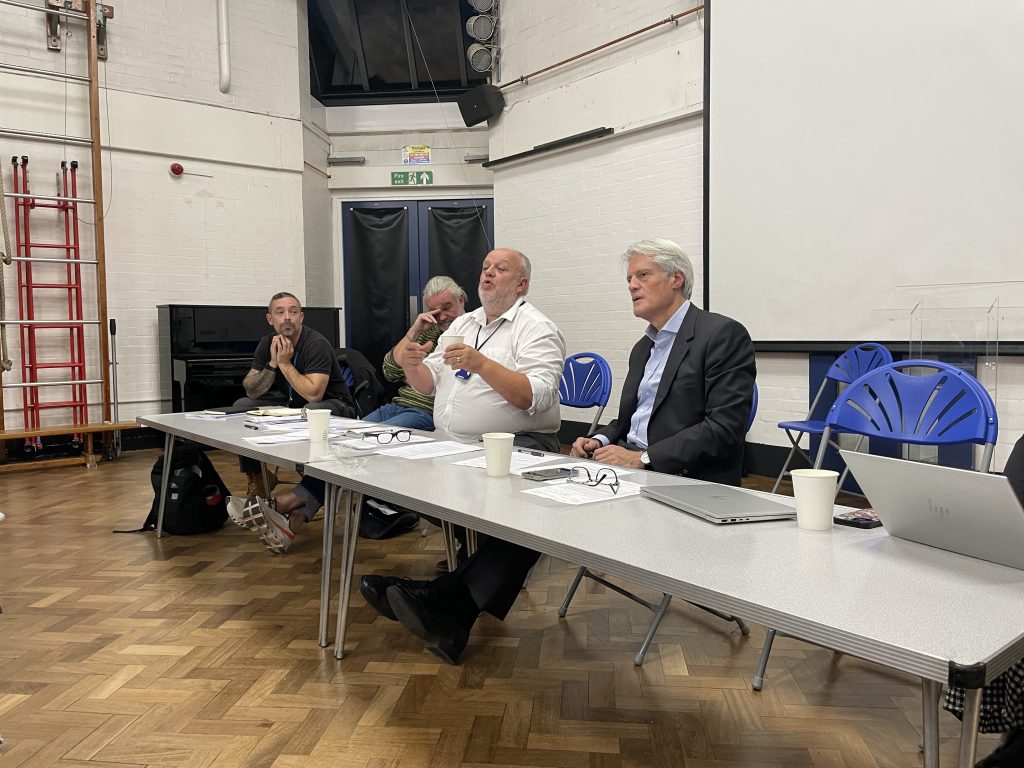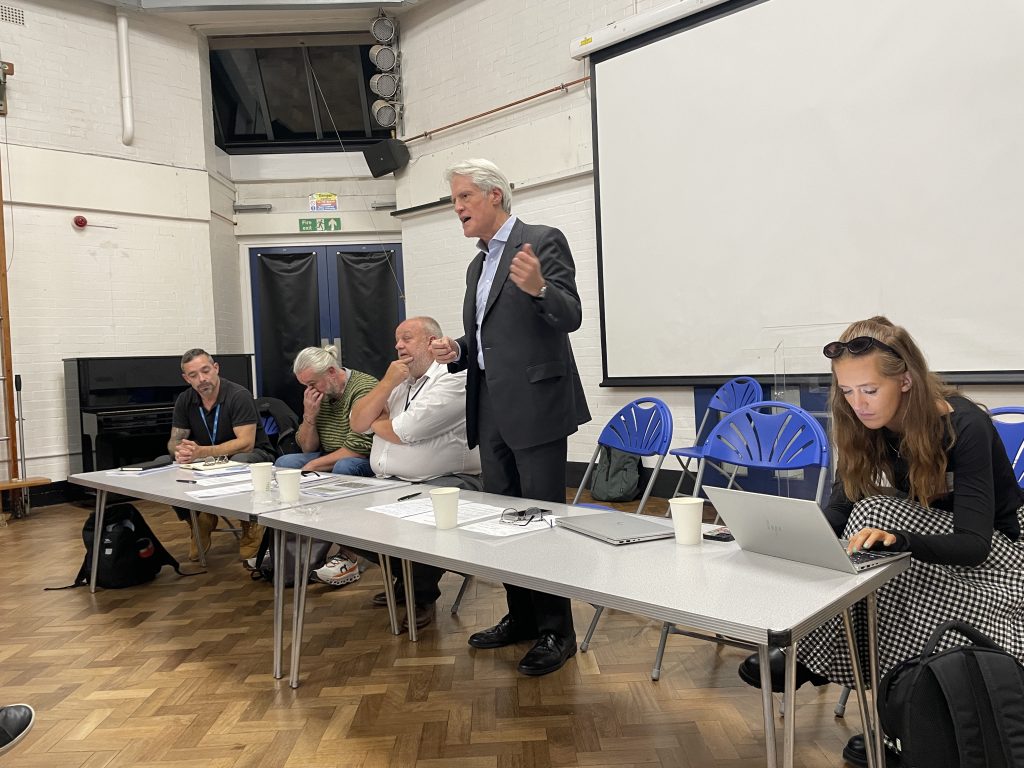RBKC officers have vowed to launched a new investigation to prove whether the proposed £8 million replacement of Cremorne Estate’s heating system is necessary, after their feet were put to the fire at a public meeting.
Following a heated debate with residents, officers promised to embark on a full testing programme this November to provide unequivocal data as regards the efficiency of the current heating and hot water system to justify its wholesale replacement.
The meeting at Ashburnham Primary School on Wednesday was chaired by Ben Coleman MP, who calmed tensions and fielded questions from the floor to officers.
RBKC’s housing manager Paul Foster came under particularly heavy and repeated fire from residents who fear a huge charge for the installation of the new system – followed by higher energy bills than they currently receive.
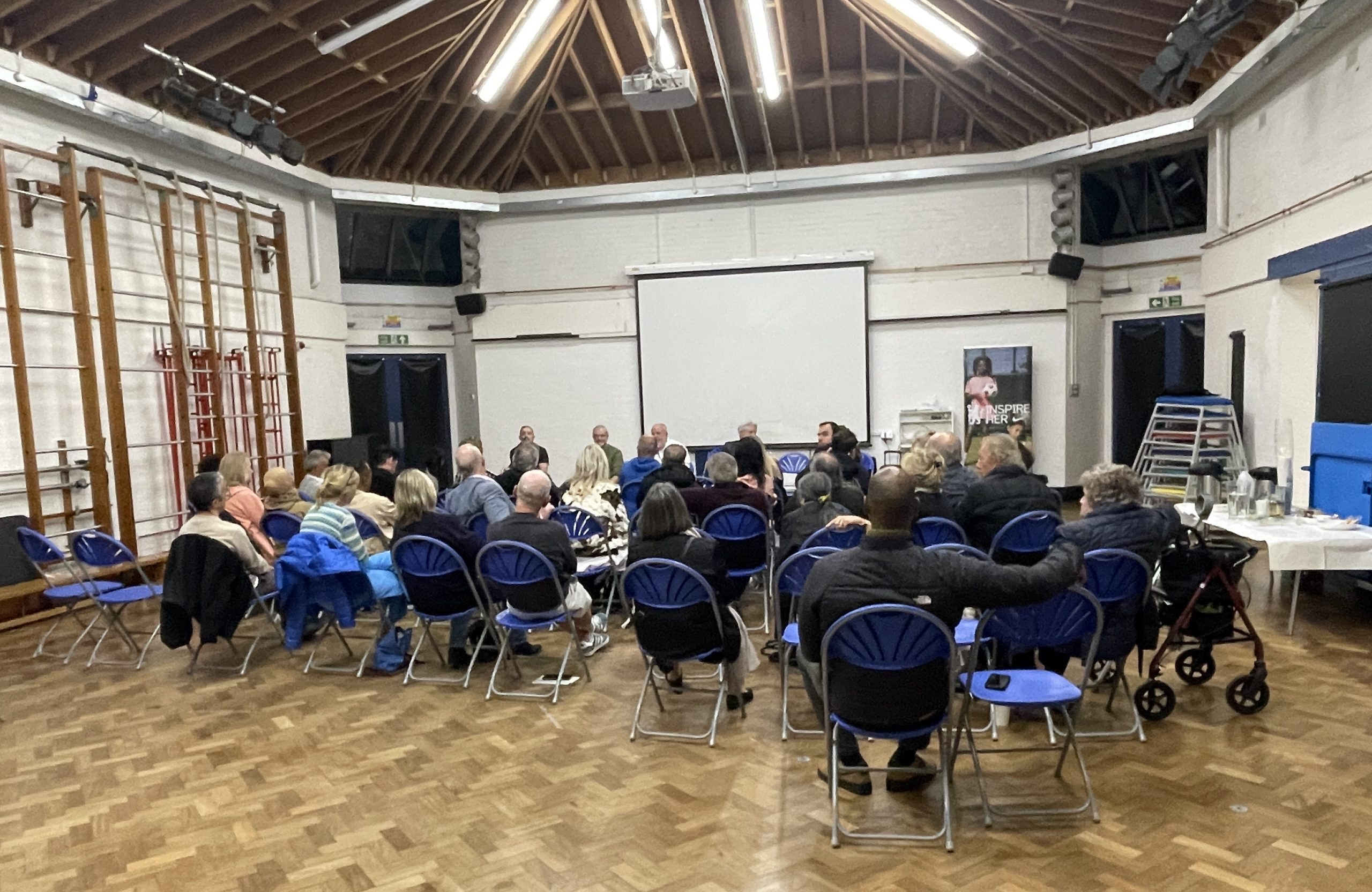
The meeting on Wednesday drew a noticeably smaller attendance than the one in May
There are reports that the ‘major works’ charge could be as high as £11,000 per flat, but no clear estimate has so far been revealed. Such charges would largely fall only upon leaseholders, as tenants would receive considerable financial support from the council. Officers agreed on Wednesday to find out if leaseholders would also qualify for any RBKC-funded discount for this scheme.
At a previous meeting in May – one that was more heavily attended than Wednesday’s – officers outlined how they had discovered damage across the heating network that warranted its replacement. Residents were skeptical about those findings and have been demanding more information and greater detail ever since.
Three Council officers met with around 40 residents on Wednesday to provide up-dates about the scheme. The meeting lasted more than two hours and covered multiple issues, including the reasons for the scheme, its viability, the timing, and the overall costs.
In July 2020, the Council first informed residents that the estate’s heating system, including the boiler house and all pipework within each flat, was out of date and needed to be replaced. The proposal, which was made without public consultation, has caused widespread worry and indignation across the estate, which borders the King’s Road to the south, near World’s End.
- Paul Foster in white next to Ben Coleman
Residents believe that their heaters work fine and that the replacement scheme would not only be prohibitively expensive, it would also be widely disruptive to residents who would be expected to move out during the works.
Amalia Cebreiro, the resident group leader, stressed when the meeting began: ‘The richest borough in England is going to spend eight million pounds to put the most vulnerable residents at risk. 80% of our residents are vulnerable. The elderly and disabled will not be able to afford their heating as we have now.’
The major argument of the meeting was whether the replacement is necessary. The Council said the current “one-pipe system” is not energy efficient, and that the Heat Network Regulations require the council to install new energy meters.
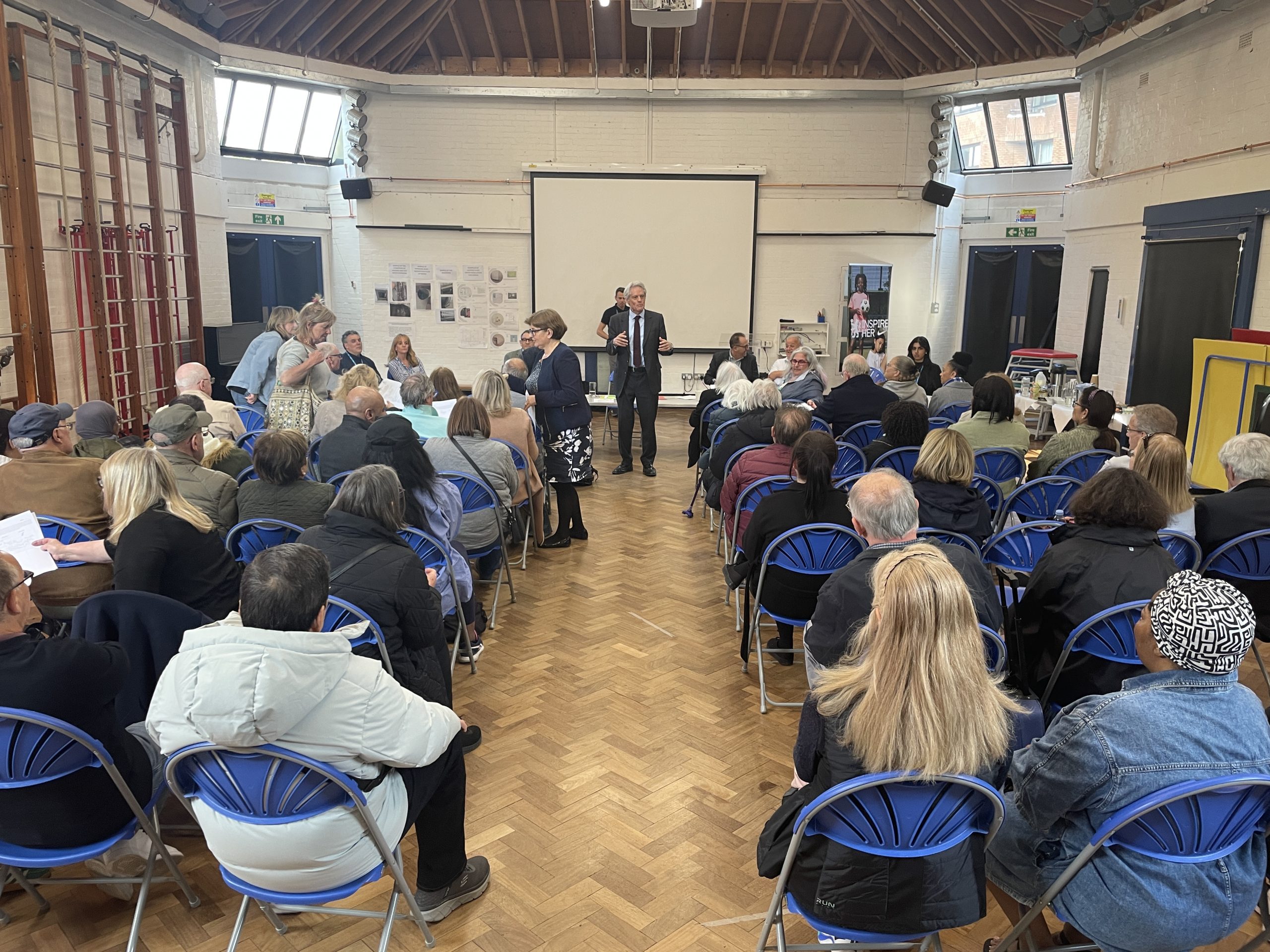
The meeting in May when residents began their demands for more information about the need for a new heating system
Resident Jules Montero, who serves on the World’s End Estate committee, argued that replacing the heating system is not mandatory and emphasised that the regulations are only for guidance.
MP Coleman then searched the regulations and said: ‘This is a summary of Google AI, so it can be challenged: “Councils don’t have a legal requirement to introduce heat units…under new regulations, all properties on communal heating must undergo a viability assessment to determine if installing heat meters is cost-effective and will save residents money.”’
Regarding the assessment, the Council officers said a visual assessment shows that the pipes have been corroded. They had also visited 12 residents, who reported inadequate heating.
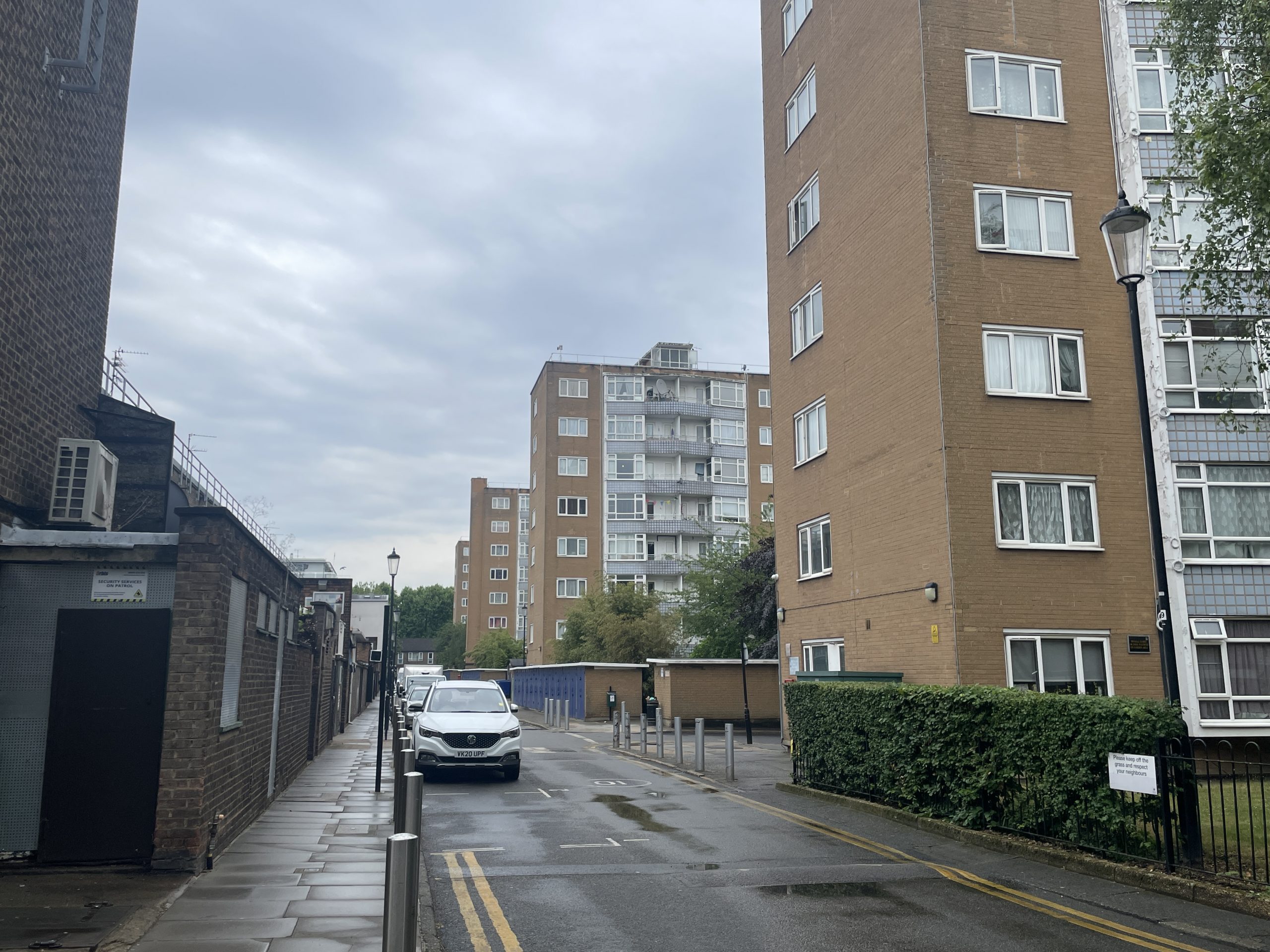
Cremorne Estate
Residents demanded a comprehensive assessment to see if the replacement is legally required. A man who has lived there for 10 years asked: ‘Before you spend millions of pounds, shouldn’t we first be clear whether this is mandatory by law? Shouldn’t we need an independent company to make a technical full condition survey?’
Another key debate is the cost and impact of the project. Ms Cebreiro cited a report by the property consultancy Calford Seaden in 2019, suggesting bills could double with the new heating meters.
Mr Foster responded: ‘The report was issued in 2019, and the heat metering requirements were ruled in 2020. That’s not what we’re talking about. I have contacted Calford Seaden myself. I have asked for a copy of their report, which they said they can’t find. There were also no comparable costs in 2019.’
He added that they need to assess individual residents’ circumstances to see if they need to be “decanted” (re-housed) during the works, and that the council is still awaiting details on subsidies from the government for such a vast scheme.
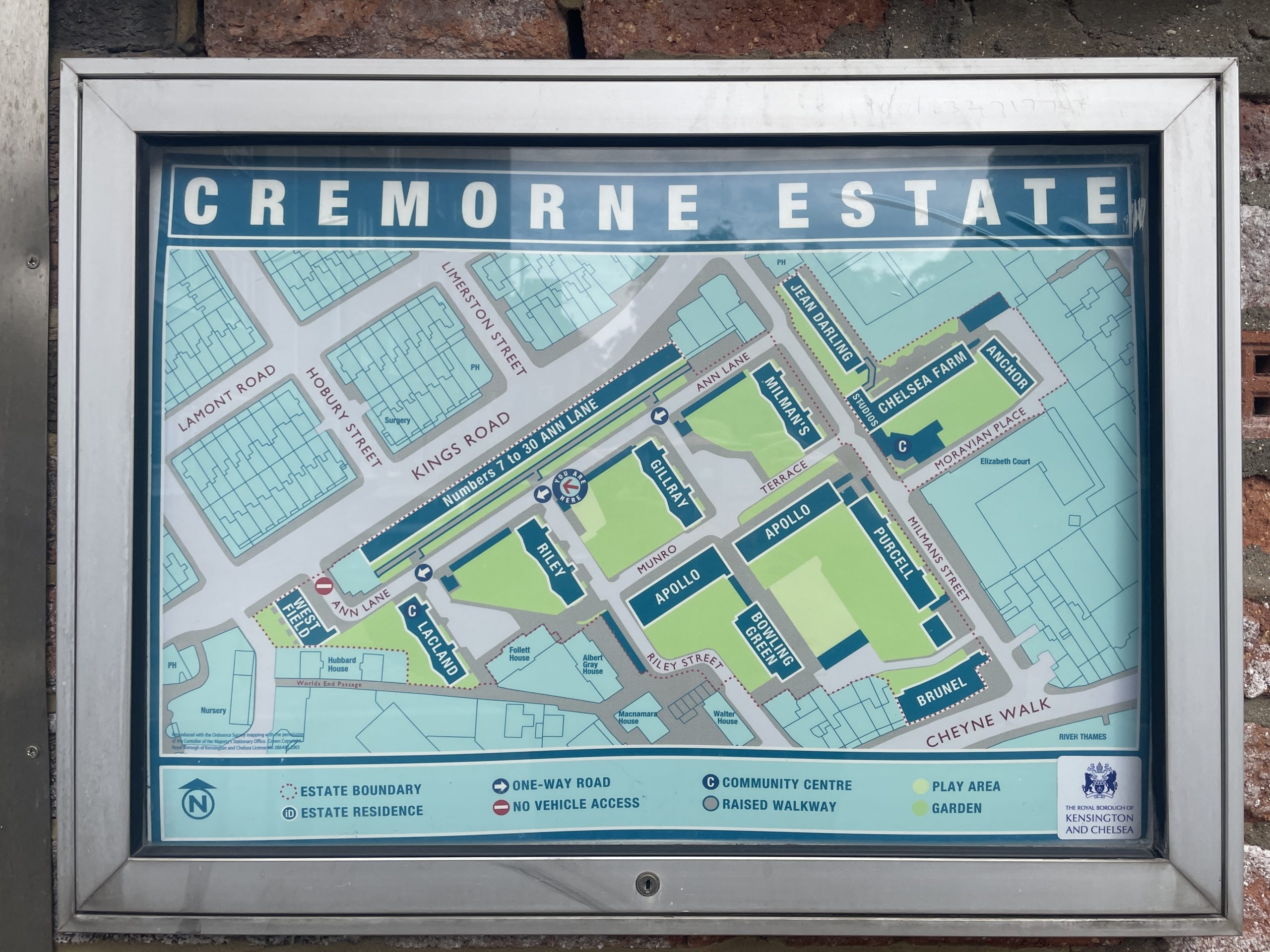
Map of the estate
After over two hours of debate, the Council agreed to begin a full condition survey in November, when the weather will be colder, to produce data about the efficiency of the current system. They also agreed to publish the cost estimates by next March. If the scheme goes ahead, installation will begin some time during 2027. Residents would expect to be billed for the major works in 2028, but officers agreed that the price for the works would be “locked in”, as soon as the council had finalised the overall price for the project.
The Council has asked for volunteer residents from across all blocks, from top to bottom floors, to host temperature monitors as part of the November survey. They will send out a letter in the coming weeks inviting residents to volunteer.
Following the meeting, Mr Coleman spoke to The Citizen. He highlighted that it is imperative that the Council does not proceed with the replacement works without residents knowing the costs in advance. He said: ‘This is an important issue. Residents don’t feel that they are being heard. I don’t have a view, but my job is to bring people together – the council and the residents – so that we can really discuss this in detail.
‘The officers provided some information after the last meeting, but it’s still not quite enough for residents to be able to know the cost and whether there is a strong rationale for doing this. I think we’re in a process…what we agreed today, and I think it was helpful, is what more information residents want and the officers agreeing to provide that. When that information is provided, we’ll come together, have another meeting and see what the residents’ views are.’
The next meeting will be held about in January.
Additional reporting Rob McGibbon
